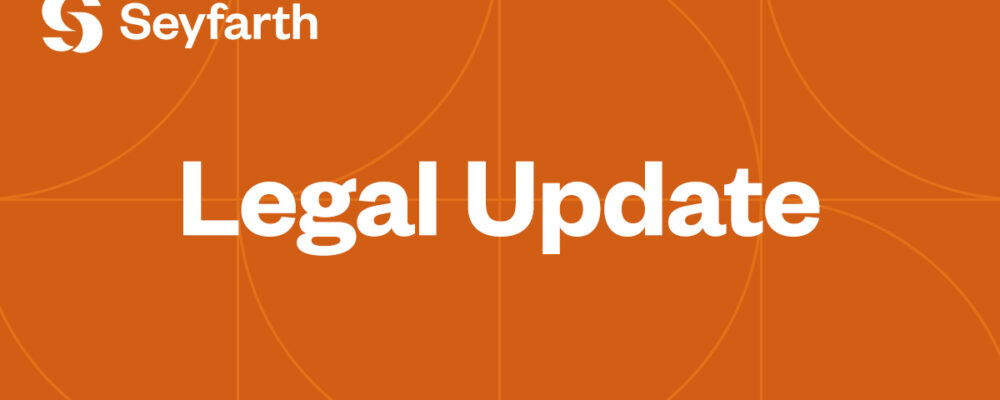Seyfarth Synopsis:
The California Supreme Court reaffirmed that arbitration agreements are on equal footing with other types of contracts. Therefore, a court should apply the same principles that apply to other contracts to determine whether the party seeking to enforce an arbitration agreement has waived its right to do so. Quach v. California Commerce Club, Inc.
The Facts
In 2018, following his termination, Peter Quach sued his former employer, California Commerce Club, Inc., for discrimination, harassment, and retaliation, among other things. Commerce Club’s answer asserted an “affirmative defense” that Quach should be compelled to arbitrate his claims. Initially, Commerce Club was not able to locate a fully-executed copy of Quach’s 2015 arbitration agreement—it only found the signature page. Therefore, rather than filing a motion to compel arbitration based on the 2015 arbitration agreement, Commerce Club actively participated in discovery, including taking Quach’s deposition, and it indicated on a case management conference statement that it desired a jury trial.
Thirteen months after Quach filed his lawsuit, Commerce Club filed a motion to compel arbitration under the Federal Arbitration Act (FAA). In addressing its delay in filing the motion, Commerce Club asserted that it had only recently located the entire arbitration agreement. Quach opposed the motion, arguing that Commerce Club had waived its contractual right to compel arbitration.
The Trial Court’s Decision
The trial court denied Commerce Club’s motion. The court concluded that Commerce Club knew of its right to compel arbitration but, instead of moving to compel, it propounded written discovery and took Quach’s deposition, thereby demonstrating a position inconsistent with the intent to arbitrate and prejudicing Quach.
The Court of Appeal’s Decision
A divided Court of Appeal reversed the trial court’s decision, holding that Commerce Club did not waive its right to compel arbitration. The Court of Appeal reasoned that the trial court’s finding that Quach had shown prejudice was not supported by substantial evidence. Two weeks after the Court of Appeal published its decision, the United States Supreme Court issued its ruling in Morgan v. Sundance, Inc., 596 U.S. 411 (2022), holding that the FAA does not require a showing of prejudice to establish waiver of the right to arbitrate.
The California Supreme Court’s Decision
California courts have, for decades, applied a framework grounded in a “strong policy favoring arbitration” over litigation. Consequently, California courts have noted that parties seeking to establish waiver of the right to arbitrate must satisfy a “heavy burden of proof” in order to show prejudice. This has required the party opposing arbitration to show prejudice that goes beyond the loss of time and expenses normally associated with litigating a dispute, and the courts have resolved any doubts in favor of arbitration.
In its opinion, the California Supreme Court made clear that, in order to establish waiver under generally applicable contract law, the party opposing enforcement of a contractual agreement must prove, by clear and convincing evidence, that the waiving party knew of the contractual right and intentionally relinquished or abandoned it. The waiver inquiry is exclusively focused on the waiving party’s words or conduct; neither the effect of that conduct on the party seeking to avoid arbitration, nor that party’s subjective evaluation of the allegedly waiving party’s intent is relevant.
Relying on this analytical framework, the California Supreme Court concluded that there was clear and convincing evidence that Commerce Club had waived its right to arbitrate. This conclusion was based on the facts that Commerce Club was aware of its right to compel arbitration (despite its inability to find a complete copy of Quach’s arbitration agreement sooner), and Commerce Club’s words and conduct demonstrated its intentional abandonment of the right to arbitrate.
What Quach Means for Employers
The lower standard of evidence for establishing waiver allowed by this ruling may result in more frequent claims of waiver in opposition to a party’s attempt to enforce an arbitration agreement. Therefore, employers should immediately investigate whether an employment dispute may be subject to an arbitration agreement and, if it is, take appropriate steps.
“With approximately 900 lawyers across 17 offices, Seyfarth Shaw LLP provides advisory, litigation, and transactional legal services to clients worldwide.”
Please visit the firm link to site





